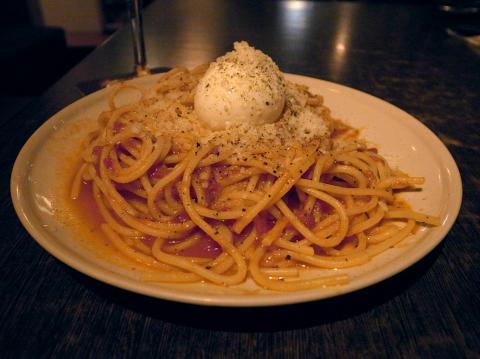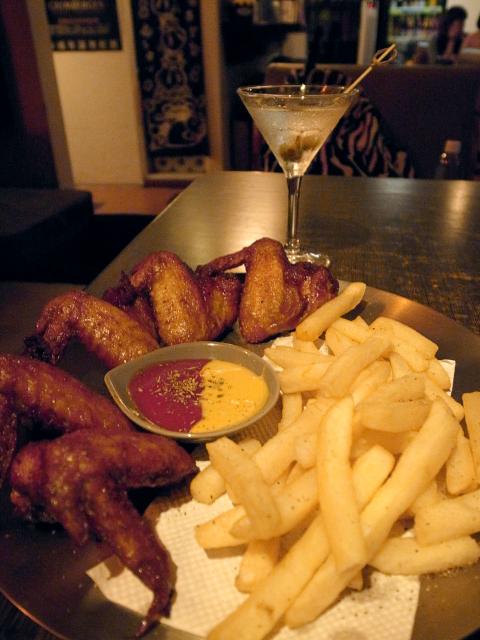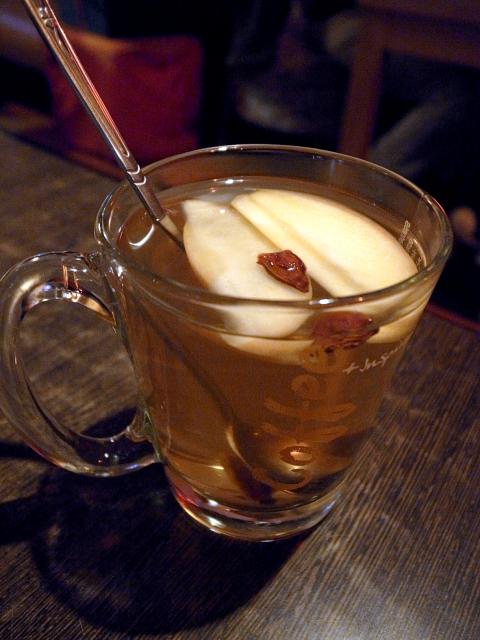T here was a sense that something was amiss in Shida (師大) when my drinking companions and I stood in front of the apartment building in which Bistro O is located. The door was locked. A sign said reservations must be made ahead by phone. We called, and a few minutes later someone came down and let us in.
She told us that the bar will be closed for half a year starting next month, but it is not certain whether business will be resumed after the break. The woman, however, kept her lips sealed over the reason behind the closure.
A few days later, the news of Underworld (地下社會) shutting down on June 15 hit Facebook. Sadly, the basement rock club has lost its battle against outdated regulations, inert bureaucracy and the Shidahood Self Help Association (師大三里里民自救會), a neighborhood lobby group that has taken credit for the mass closures of restaurants and shops in the Shida area.

Photo: Ho Yi, Taipei Times
Though the future may look dim, at least for now the city’s rebels and bacchanalians can still count on the two longtime Shida businesses to have a great night out.
Tucked away in the maze of alleys that constitute the Shida night market, Bistro O feels like an oasis of seclusion from the hubbub outside. It is dark, atmospheric and filled with threadbare furniture that strangely lends the place a bohemian charm. A couple of fluffy felines occasionally glide through the space, and like their human companions that work at the bar, they seem detached, minding only their own business.
What is offered at the bar is a completely different matter. The bar’s remarkably long list of alcoholic drinks is intended to make a boozer squeal with excitement. The wide spectrum of drinks ranges from classical cocktails, beer (mostly Belgian), to spirits and innovative concoctions. The bar also devises its variations of the classics, with the drink menu beginning with more than a dozen varieties of long island iced tea (NT$350) including mixtures with absinth and black tea. There is an equal number of martini varieties among which grasshopper (NT$200) sees pepper mint and cocoa, while the rose litchi martini (NT$250) fuses sake and gin with rose honey, litchi fruit and cranberry juice.

Warning: Excessive consumption
of alcohol can damage your health.
Photo: Ho Yi, Taipei Times
Tipplers who prefer to imbibe liquor by the shot should look no further than the extensive section of premium spirits that include Hendrick’s gin (NT$230 per glass and NT$2,300 per bottle) from Scotland, Poland’s Potocki vodka (NT$240 and NT$2,400), France’s Grey Goose (NT$240 and NT$2,400), Lagavulin 16 year old whisky (NT$340 and NT$3,400) and Patron tequila (NT$180 per shot and NT$270 per glass).
For health-conscious drinkers, the bar has gone through the trouble of making their own liqueurs using fresh fruit and homegrown herbs. The end product includes lavender cassis (NT$250), caipilrinha cachaca (NT$250) and mojito fruit mojito (NT$250) with handmade jam.
Female imbibers will appreciate the thoroughness of the all-female staff. They concoct sweet alcoholic beverages including hot chocolate with rum (NT$200). And, for that special female time of the month, there is the Kahlua and milk tea (NT$200).

Warning: Excessive consumption
of alcohol can damage your health.
Photo: Ho Yi, Taipei Times
The bar also carries a respectable menu of pub grub, pasta and sandwiches. The soft egg tomato pasta with Parmesan cheese (NT$200) and walnut egg yolk cream pasta (NT$200) we recently tried were on a par with those offered in restaurants. Flavored with rosemary, the buffalo wings with French fries (NT$300) were a table favorite.
Unfortunately, hookahs are no longer available in the establishment.
Bistro O is having a special on all cocktails and spirits before its hopefully temporary shutdown on April 30. Take 20 percent off the original price and you will have an intoxicating night in Shida before the above-mentioned self-help association turns the bustling neighborhood into a dull residential area.

April 14 to April 20 In March 1947, Sising Katadrepan urged the government to drop the “high mountain people” (高山族) designation for Indigenous Taiwanese and refer to them as “Taiwan people” (台灣族). He considered the term derogatory, arguing that it made them sound like animals. The Taiwan Provincial Government agreed to stop using the term, stating that Indigenous Taiwanese suffered all sorts of discrimination and oppression under the Japanese and were forced to live in the mountains as outsiders to society. Now, under the new regime, they would be seen as equals, thus they should be henceforth

Last week, the the National Immigration Agency (NIA) told the legislature that more than 10,000 naturalized Taiwanese citizens from the People’s Republic of China (PRC) risked having their citizenship revoked if they failed to provide proof that they had renounced their Chinese household registration within the next three months. Renunciation is required under the Act Governing Relations Between the People of the Taiwan Area and the Mainland Area (臺灣地區與大陸地區人民關係條例), as amended in 2004, though it was only a legal requirement after 2000. Prior to that, it had been only an administrative requirement since the Nationality Act (國籍法) was established in

Three big changes have transformed the landscape of Taiwan’s local patronage factions: Increasing Democratic Progressive Party (DPP) involvement, rising new factions and the Chinese Nationalist Party’s (KMT) significantly weakened control. GREEN FACTIONS It is said that “south of the Zhuoshui River (濁水溪), there is no blue-green divide,” meaning that from Yunlin County south there is no difference between KMT and DPP politicians. This is not always true, but there is more than a grain of truth to it. Traditionally, DPP factions are viewed as national entities, with their primary function to secure plum positions in the party and government. This is not unusual

US President Donald Trump’s bid to take back control of the Panama Canal has put his counterpart Jose Raul Mulino in a difficult position and revived fears in the Central American country that US military bases will return. After Trump vowed to reclaim the interoceanic waterway from Chinese influence, US Defense Secretary Pete Hegseth signed an agreement with the Mulino administration last week for the US to deploy troops in areas adjacent to the canal. For more than two decades, after handing over control of the strategically vital waterway to Panama in 1999 and dismantling the bases that protected it, Washington has